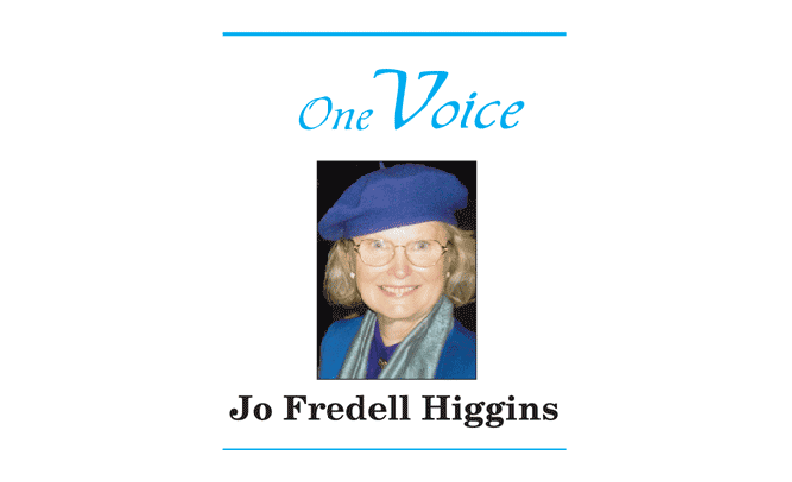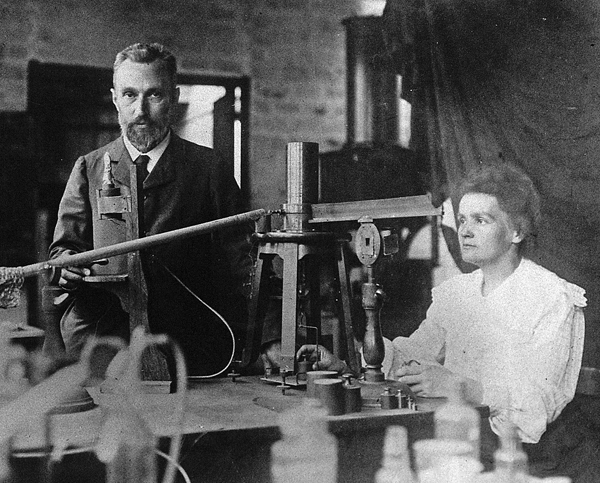
Marie Sklodowska Curie was the first woman to win a Nobel Prize. She is one of the few individuals ever to win two Nobel Prizes in two fields. It was her work on radioactivity for which she won the first great honor. Other notable honors were the Davy Medal, the Matteucci Medal, The Albert Medal, and the Willard Gibbs Award.
Some types of matter give off rays of energy, called radioactivity. Both Marie and Pierre’s work on radioactivity helped scientists better understand the nature of matter. It is the basis of many important scientific developments that have changed the world.
Marie Sklodowska was born November 7, 1867 in Warsaw, Poland. Her parents, Bronislawa and Wladyslaw, were teachers. The family had lost their property and fortunes through patriotic involvements in Polish national uprisings aimed at restoring Poland’s independence from the Russians.
Marie was unable to enroll in an institution of higher education because she was a woman. It was 1883. Marie had a collapse, possibly due to depression and spent a year in the countryside and the next year with her father in Warsaw where she tutored.

Wikipedia photo
Pierre Curie was born May 15, 1859 in Paris, France. His doctor father, Eugene, and mother, Sophie-Claire, hired private teachers for him. Pierre later was graduated from the Sorbonne University in Paris. When he was 21, he and his brother, Jacques, discovered that electricity flows out of certain crystals when they are pressed on. When those crystals are placed near electricity, they get smaller. The brothers used this knowledge to invent an electrometer. It used crystals to measure electric currents.
Marie went to Paris in 1891 to study at the Sorbonne. She ended up graduating first in her physics class. A year later she was graduated second among the math students. She began working in a small space at Pierre Curie’s lab. They fell in love even though she rejected his first proposal and were married July 25, 1895. They would have two daughters.
Both studied for their doctorates. Pierrre did experiments with magnets. Marie studied X-rays for her doctorate. Marie was the first person to call the rays emitted by certain elements radioactivity. They were to separate the matter that emitted the strongest rays with an electrometer. They named the two new elements radium and polonium.
In 1903 Marie and Pierre won the Nobel Prize in physics for their work on radioactivity. That same year Marie became the first woman in France to earn a doctorate.
Sadness arrived April 19, 1906 when Pierre died after being hit by a carriage while crossing the Rue Dauphine in the rain and the carriage wheel ran over his head. The Sorbonne asked her to take over Pierre’s job as professor there and thus she became the Sorbonne’s first female professor. Marie started a lab to honor Pierre’s memory.
In 1911 Marie won the Nobel Prize in chemistry. The award was for discovering new elements and separating a sample of radium. In 1914 during World War I, Marie set up X-ray centers to treat wounded French soldiers. She treated some soldiers in vans which became known as petite Curies.
Too much radioactivity can cause cancer. Being around radioactivity too much gave Marie cancer (Aplastic anemia) and she died of it July 4, 1934 at a sanatorium in Sancellemoz, France. Even to this day all their files, even her cookbooks, are too radioactive and are kept in lead boxes. Both Marie and Pierre were buried in the Pantheon in Paris. Their daughter, Eve, became a writer and her sister, Irene, became a scientist.

